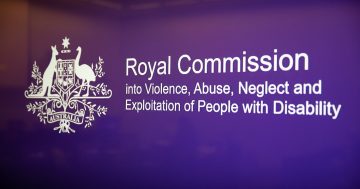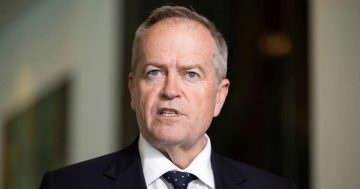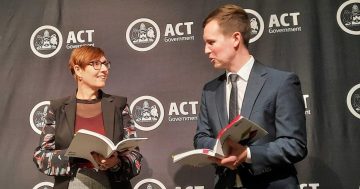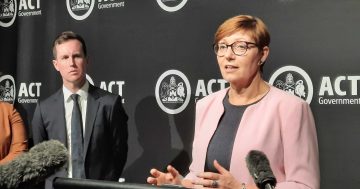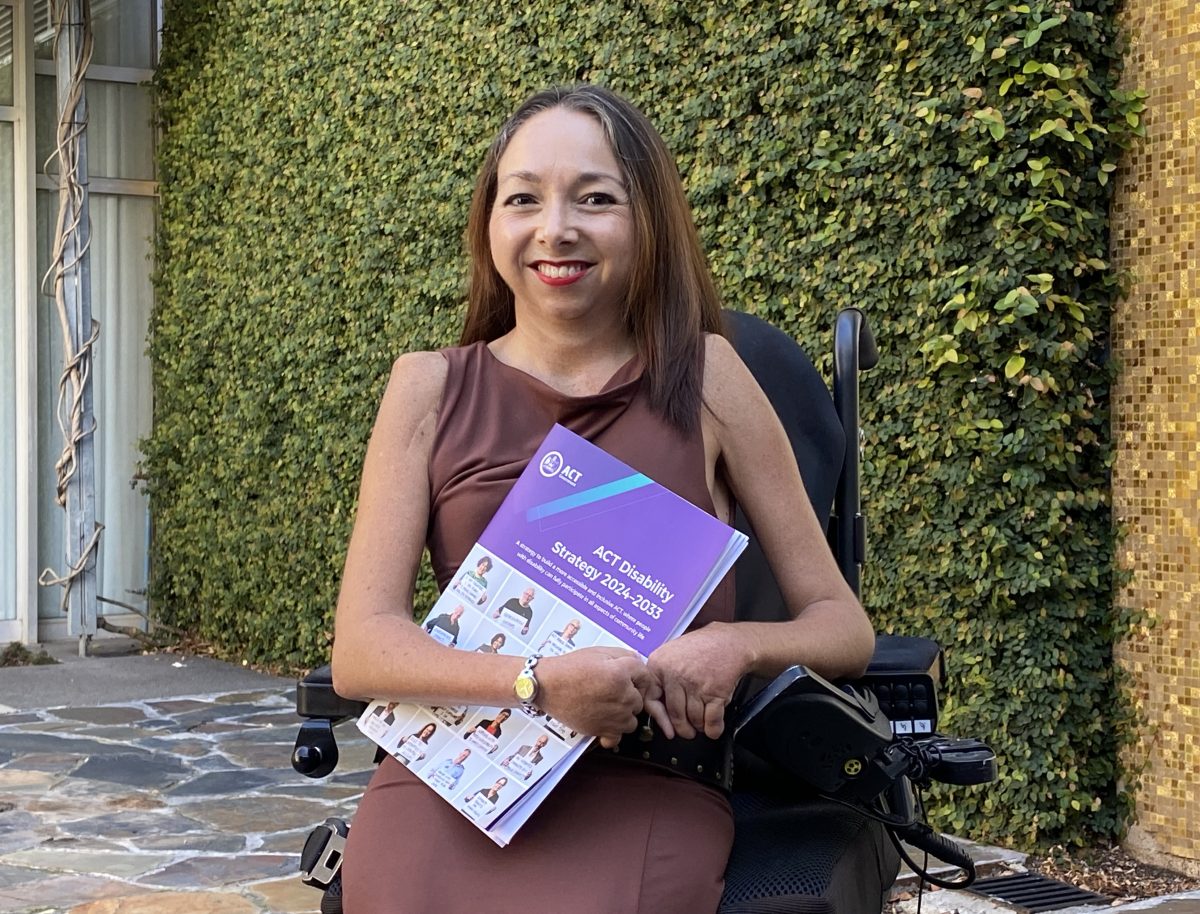
ACT Disability Reference Group chair Renee Heaton has described the first disability strategy action plan as full of meaningful changes to make Canberra more inclusive. Photo: Claire Fenwicke.
As part of a plan to make Canberra more inclusive, the ACT public service has set a new goal for nine per cent of the workforce to be people with a disability.
The 10-year ACT Disability Strategy 2024-2033 and First Action Plan 2024-2026 have been released with $5.54 million allocated over four years.
Funding will specifically support actions including Aboriginal community-controlled organisations to deliver culturally safe and inclusive services for Indigenous peoples with disability; creating disability liaison officer roles in Housing ACT and Access Canberra; training to upskill Domestic Family and Sexual Violence workers; improving accessible communications and information; and working to deliver a peer support program to improve the wellbeing of LGBTIQ+ people with disability.
Disability Minister Rachel Stephen-Smith said the strategy aimed to support the one in five Canberrans who lived with a disability to have full and equal participation in all aspects of community life.
“Canberrans with disability are active members of our community, but they also experience significant disadvantage and marginalisation. On average, people with disability are less likely to finish school, attend university or have paid employment, and more likely to experience violence,” she said.
“As a community we must do more to ensure every Canberran has equal opportunity to participate and thrive.”
ACT’s Disability Reference Group led and handled consultation. Direct feedback resulted in the creation of the disability liaison roles in Housing ACT and Access Canberra.
Chair Renee Heaton said extensive consultation took place through workshops, kitchen table chats, surveys, toolkits and submissions.
“Don’t get me wrong, we’re never going to get [consultation] perfect … but we made sure to do this in a really strong and positive way,” she said.
“The plan was built on the voices and experiences of people with disability here in the ACT.”
She particularly felt it was important for the ACT Government and public service to lead by example.
“I know how hard it is to get a job, it was the hardest thing I ever did (in my life so far) … but it was also the most critical to my life,” Ms Heaton said.
“It made such a difference, having a meaningful job gave me purpose, gave me a sense of achievement, gave me value. Being part of a team gives me a sense of belonging, and of course the financial independence that comes from having a good, meaningful job means you can be a little bit more independent.
“I’d encourage people outside of the government – small business owners, Canberra tourism operators, retail stores – to think about: what does inclusion look like in the space that I’m working in now, or that I’m offering?”
The strategy has also been welcomed by carers of people with disabilities.
Carers ACT CEO Lisa Kelly said while there were no specific initiatives for carers in the strategy, the focus on inclusion and improvement to support people with disability would positively impact carers.
“A Canberra that genuinely recognises, respects, and listens to people with disability and their carers will undoubtedly enhance the wellbeing of all Canberrans,” she said.
“We eagerly anticipate the ongoing impact of carers’ experiences on the strategy’s rollout and are optimistic about the practical, positive changes it will bring to the daily lives of people with disability, their carers, and families.”
The first action plan has deliberately not included the ACT Government response to recommendations from the national Disability Royal Commission or NDIS Review.
Ms Stephen-Smith said that work was ongoing but the first action plan was shorter than usual to set up the foundations needed to support the government’s responses.
“We’ll work as quickly as we can to implement the recommendations from those reviews, but we wanted to make sure we built a foundation through this first action plan over the first couple of years to enable us to build on that,” she said.
“I expect the second and third action plans will incorporate much of the response to the Disability Royal Commission in particular.”
Ms Heaton agreed more work was needed to make sure the government was ready to implement any response to the national recommendations.
“This [first action plan] is just a platform from which we can leverage and start doing the things we heard about from community and the consultation now,” she said.
“We know there is further work to come over the next two years and even longer to make sure we embed some of those really critical, big things that we heard through those two pieces of work.”
Original Article published by Claire Fenwicke on Riotact.


